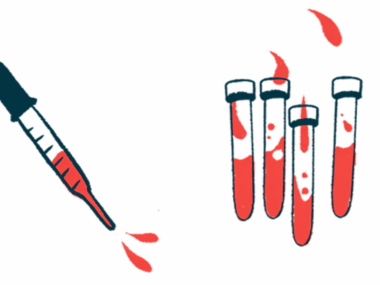Antibody test for Roctavian cleared under new, stringent EU rules
Approval helps to ensure continuing access to the gene therapy across Europe
Written by |

AAV5 DetectCDx, a companion diagnostic test used to determine patient eligibility for the hemophilia A gene therapy Roctavian (valoctocogene roxaparvovec-rvox), has been cleared for use under more stringent European Union rules coming into effect in a few years.
Specifically, the test gained the Conformité Européenne (CE) mark under the EU’s In Vitro Diagnostic Medical Devices Regulation (IVDR), which will be required for all medical devices starting in May 2026. It initially received the CE mark, given to indicate that medical devices have met mandatory requirements related to safety and environmental protection standards, in 2020.
The new, more rigorous clearance ensures that patients will continue to have access to AAV5 DetectCDx in the years to come, according to its manufacturer, ARUP Laboratories.
Antibodies to gene therapy’s vector can diminish its effectiveness
“We are proud to be involved in this effort to support the needs of patients with severe hemophilia A. We’ve demonstrated by our ability to execute on these stringent regulatory requirements that we’re committed to patient safety and access to testing,” Jay Patel, MD, vice president of Clinical Trials and PharmaDx at ARUP, said in a company press release.
This CE mark also will allow samples from patients living in the EU — and in countries that follow EU health regulations — to be processed at ARUP’s centralized lab in Salt Lake City, Utah.
“Very few clinical labs have the quality management system and competencies in place to execute on a new companion diagnostic at this regulatory level,” Patel said.
Roctavian is designed to deliver a healthy copy of the F8 gene to patients’ cells. Hemophilia A is caused by mutations in this gene, leading to a deficiency in a clotting protein called factor VIII, and putting patients at risk of experiencing excessive bleeding.
By delivering a healthy copy of the gene to the liver, where clotting factors are made, the gene therapy is designed to restore the production of this clotting protein, lowering the risk of bleeds, and potentially reducing or eliminating the need for routine preventive disease treatment.
Roctavian delivers its genetic payload using a virus, called adeno-associated virus serotype 5 or AAV5, that’s been engineered to place the therapeutic gene inside cells rather than causing an infection.
The therapy was given conditional EU approval in 2022 as a treatment for adults with severe hemophilia A. Earlier this year, it similarly was approved in the U.S.
Both approvals specify that Roctavian should only be used in people who do not already have antibodies against AAV5. Such antibodies can prevent the therapy from working properly, and clinical trials of Roctavian have excluded patients with these antibodies.
The AAV5 DetectCDx test can be used to detect the presence of anti-AAV5 antibodies. The test, which is also approved for use in the U.S., was authorized based on data from Roctavian’s clinical trials, where it was used to determine patient eligibility.
IVDD approval of the test was carried out as part of a collaboration between ARUP and BioMarin Pharmaceutical, the company that markets Roctavian.
“We are gratified to see the results of this colossal effort from both teams and to fulfill an unmet need for patients with rare diseases such as hemophilia A,” said Jennifer Granger, PhD, group manager of the PharmaDx Companion Diagnostics team at ARUP.



